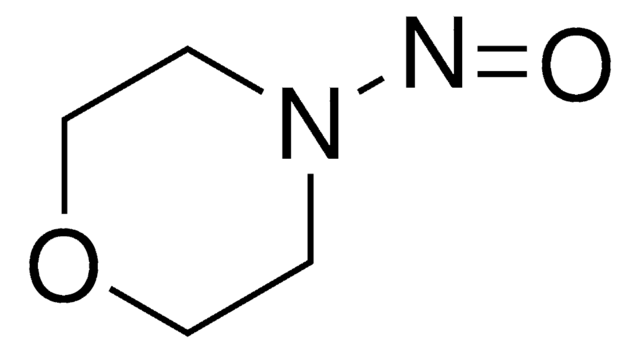V800165
Dimethylglyoxime
AR
Synonym(s):
2,3-Butanedione dioxime, Diacetyldioxime
Sign Into View Organizational & Contract Pricing
All Photos(1)
About This Item
Linear Formula:
CH3C(=NOH)C(=NOH)CH3
CAS Number:
Molecular Weight:
116.12
Beilstein:
506731
EC Number:
MDL number:
UNSPSC Code:
12352100
PubChem Substance ID:
Recommended Products
grade
AR
product line
Vetec™
mp
240-241 °C (lit.)
SMILES string
CC(=N/O)\C(C)=N\O
InChI
1S/C4H8N2O2/c1-3(5-7)4(2)6-8/h7-8H,1-2H3/b5-3+,6-4+
InChI key
JGUQDUKBUKFFRO-GGWOSOGESA-N
Looking for similar products? Visit Product Comparison Guide
Legal Information
Vetec is a trademark of Merck KGaA, Darmstadt, Germany
Signal Word
Warning
Hazard Statements
Precautionary Statements
Hazard Classifications
Flam. Sol. 2
Storage Class Code
4.1B - Flammable solid hazardous materials
WGK
WGK 3
Certificates of Analysis (COA)
Search for Certificates of Analysis (COA) by entering the products Lot/Batch Number. Lot and Batch Numbers can be found on a product’s label following the words ‘Lot’ or ‘Batch’.
Already Own This Product?
Find documentation for the products that you have recently purchased in the Document Library.
M J Capeness et al.
New biotechnology, 32(6), 727-731 (2015-02-18)
Desulfovibrio alaskensis G20 is an anaerobic sulfate reducing bacteria. While Desulfovibrio species have previously been shown to reduce palladium and platinum to the zero-state, forming nanoparticles in the process; there have been no reports that D. alaskensis is able to
Jacob Pontoppidan Thyssen et al.
The Science of the total environment, 407(20), 5315-5318 (2009-07-28)
Nickel allergic subjects are at risk factor of acquiring hand eczema. In 1990 and 1994, respectively, Denmark and member states in the EU regulated nickel release from selected consumer products. The intention was that the nickel epidemic could be controlled
Carsten R Hamann et al.
Contact dermatitis, 68(1), 15-22 (2012-12-12)
Nickel is widely used in coins; nickel may cause contact allergy and allergic contact dermatitis in those who handle them. To investigate alloy use, coin composition and nickel and cobalt release for a worldwide selection of currently circulating coins. Eight
Jacob P Thyssen et al.
The Science of the total environment, 409(22), 4663-4666 (2011-09-06)
Nickel and cobalt allergy remain frequent in dermatitis patients. It is important to determine possible nickel and cobalt exposures at work as these may offer important information to regulators and physicians who perform patch testing. Clinical relevance of metal exposure
Peter Jensen et al.
Contact dermatitis, 65(6), 354-358 (2011-11-15)
Despite the political intention to limit nickel allergy and dermatitis in Europeans, nickel allergy remains frequent. There are several explanations for the persistence of nickel allergy and dermatitis, including the increasing use of mobile phones. Before regulation of nickel release
Our team of scientists has experience in all areas of research including Life Science, Material Science, Chemical Synthesis, Chromatography, Analytical and many others.
Contact Technical Service







